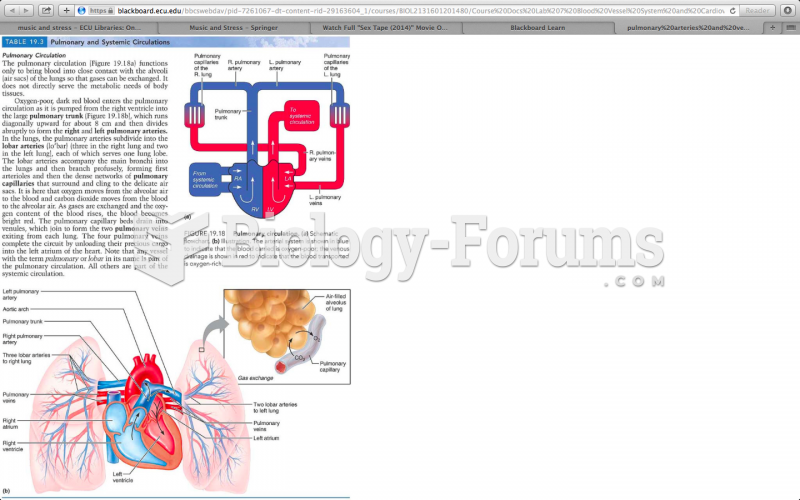|
|
|
When blood is deoxygenated and flowing back to the heart through the veins, it is dark reddish-blue in color. Blood in the arteries that is oxygenated and flowing out to the body is bright red. Whereas arterial blood comes out in spurts, venous blood flows.
In 1885, the Lloyd Manufacturing Company of Albany, New York, promoted and sold "Cocaine Toothache Drops" at 15 cents per bottle! In 1914, the Harrison Narcotic Act brought the sale and distribution of this drug under federal control.
Since 1988, the CDC has reported a 99% reduction in bacterial meningitis caused by Haemophilus influenzae, due to the introduction of the vaccine against it.
As the western states of America were settled, pioneers often had to drink rancid water from ponds and other sources. This often resulted in chronic diarrhea, causing many cases of dehydration and death that could have been avoided if clean water had been available.
Human stomach acid is strong enough to dissolve small pieces of metal such as razor blades or staples.
 Risks of infectious disease increase in (a) high-density agricultural populations compared to (b) lo
Risks of infectious disease increase in (a) high-density agricultural populations compared to (b) lo
 Freedom House is a nonprofit institution that uses several different factors to rank countries based
Freedom House is a nonprofit institution that uses several different factors to rank countries based





